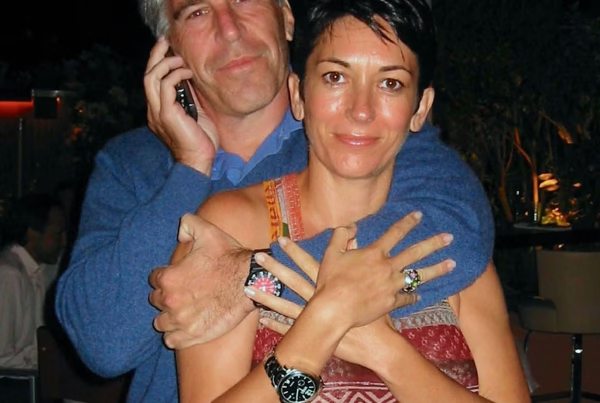How Taking Genitals Out of The Pleasure-Equation Expanded My View of Sex and Led To Much More Satisfaction.
Right from the moment I first looked up the word sex in a dictionary, I was suspicious of how it was defined. As a non-heterosexual person, my sexual desire was never sex or gender specific, so learning that a penis and a vagina had to necessarily be involved in order for sex to have transpired made no sense. Also, learning that its sole defined goal was procreation seemed like a lie, simply because, rationally-speaking, sex results in (and is desired for) pleasure *way* more often than sex results in babies. So, all my life, I’ve been very careful about how I define sex (for myself), I define it as deliberate interplay (of any kind), between parties (or even solo), to the known-goal of some kind of gratification (physical or not, genital or not), exploration or communication. So, to me, when someone is whipping me, that’s sex. When I’m licking someone’s feet, that’s me getting to know them through sex. When someone is berating me, hurting my feelings and I am crying on the floor, that’s also sex, even though no bodies ever touch. That seems way easier to me, because they’re all part of the same system of gratification to me. Different paths to the same pleasure, maybe at differing magnitudes.
I have always felt very comfortable in my definition of sex, the problem is that one can define and restructure concepts any way they want, but when we engage with others, and with society at large, their understanding of concepts also influences you and your access to your pleasure.
Socially-speaking, sex remains very genital-focused. There are, of course, people who make a distinction between sex and play, wherein sex is often associated with genitals, orgasms, nudity etc, and play may incorporate rope, power-play, pain, fetishes etc, or sex is something they do in relationships only, and play can be had outside of those bonds. I think this system does actually work well for some people, especially for people who are able to make a clear distinction between sexual pleasure and non-sexual pleasure, have established conventions around what is play and what is sex, and are able to clearly communicate which one they desire from whom and why. For me, I find this very hard to relate to. Theoretically, I understand it perfectly, in practise, I cannot determine how the pleasure of sex or play could feel different, because broken down to its smallest function, it all *feels* the same to me, and so I cannot even tell what is sex and what is play. In the grand scheme of things though, sex is still a very genital-focused thing in a few different ways, some of them gendered.
There still remains the fixation on PIV as the sole conception of sex, especially in heterosexual spaces, but even outside of heterosexual spaces, the fixation on genitals as the *final act* continues. I’ll tell you how I know. You know how even the most sexually “progressive” influencers on Instagram will tell you that you should focus more on *foreplay*, without realising that calling anything *fore*play insinuates that there is a main-act to follow, I often like to see what they advise people do *as* foreplay and it is usually things like touch, light bondage, lick this or that, kiss the neck, blindfold but it is presented in very *leading* fashion, like it is attempting to prolong the time *until* the moment of penetration, whereas I feel like better advice would be to demonstrate of the pleasure of each act in and of itself could be complete and also, enough. If all your pleasure resides in hours of licking feet, why does that have to lead to a genital? Which is not to say that’s *wrong*, it’s to say that sex as a concept needs to make room for people whose locus of pleasure does not lie in the gratification of genitals. All non-genital acts of sex do not need to be represented as *leading to* a genital-culmination of pleasure, being able to discuss them *as* sex in and of themselves makes it easier for me to communicate my pleasure and explain it.
I find this also happens in kink-spaces. Admittedly, in the fetish community, more than anywhere else, I see a truly vast representation of pleasure. I know many people for whom genitals are irrelevant to feeling like they have a successful dynamic or relationship. I know people who have fulfilling, long-term relationships without ever needing to have orgasms with each other. I see people who seek only to fulfil their fetishes in a totally non-sexual way. My love for this subculture is rooted, in no small part, in the fact that here, I see people genuinely working on defining their pleasure on their terms and disrupting conventions of pleasure. Still, in a lot of my relationships with dominant sadists (because that is who I tend to date), there are many instances where genital pleasure still resides at the centre of the experience (which is fine if that’s your thing, but it’s different if you *think* it is not your thing but your behaviour indicates otherwise, which is very often the case).
It happens in a few different ways.
There was a man I used to date, he presented himself as being solely pleasured by power-exchange, but when it came to measuring the success of our dynamic, he used how often we had *sex* (ie: PIV, oral, handjobs, anything with the potential to result in orgasm) as the metric for success and that made him feel like our D/s wasn’t reaching the *heights* he envisioned for it. For me, that was not the case, for me the gratification I seek can come from obedience, structure, discipline or any act that explores the power-dynamic and that does not have to involve genitals or orgasms, but I have had many dynamics that became rooted in those two things alone, and seemed unsuccessful to the other party because of it. And don’t get me wrong, I love genitals. I love them all. If you ask me where my favourite place to put my face is, I will tell you it’s between a pair of legs. However, even the pleasure of that, is not about what I am licking, it’s about the sentiment of reverence, the act of being *of use*, sometimes it is about humiliation, and sometimes it is about service, but all of those things can be accessed in many different ways, outside of genital-worship, and they are all just as gratifying to me. They may not be to another person, and that is fine, but many of us become entrenched in the idea of pleasure as it *should* exist, and wonder if we are doing it wrong. I see it all the time, the pressure to have a certain amount of *sex*, even though outside of this genital-interaction, you have a tonne of intimacy and pleasure that is gratifying enough. Sometimes people feel like there is a pressure to provide a certain amount of that.
 This happened in the early stages of my relationship with my spouse. He came from relationships and experiences where genital-gratification was the *point* of sex, and failure to provide that for your partner and secure it for yourself, meant you were not having good sex. So, even in relationships where the primary focus was D/s or sadomasochism, the ultimate goal still remained orgasms and genital stimulation, so the D/s or play were often a means to prolonging the pleasure to the point where its culmination was most satisfying. It also meant that *not* doing so was a failure of some sort. Early in our relationship, I noticed he was fucking me *all the time* (and I’m not *exactly* complaining, I’m demonstrating a pattern). He would beat me, then fuck me. Tie me up and torture me, then fuck me. Abduct and torment me, then fuck me. No matter what he did to me, it always ended in fucking me even when it seemed like he was sated. In discussing this with him, I came to realise that he thought he had to do that *for me* and because that is how sex was supposed to end and all his life all pleasure had cultivated there.
This happened in the early stages of my relationship with my spouse. He came from relationships and experiences where genital-gratification was the *point* of sex, and failure to provide that for your partner and secure it for yourself, meant you were not having good sex. So, even in relationships where the primary focus was D/s or sadomasochism, the ultimate goal still remained orgasms and genital stimulation, so the D/s or play were often a means to prolonging the pleasure to the point where its culmination was most satisfying. It also meant that *not* doing so was a failure of some sort. Early in our relationship, I noticed he was fucking me *all the time* (and I’m not *exactly* complaining, I’m demonstrating a pattern). He would beat me, then fuck me. Tie me up and torture me, then fuck me. Abduct and torment me, then fuck me. No matter what he did to me, it always ended in fucking me even when it seemed like he was sated. In discussing this with him, I came to realise that he thought he had to do that *for me* and because that is how sex was supposed to end and all his life all pleasure had cultivated there.
“When you’re beating me and stuff do you feel satisfied? Pleasured?” I asked him.
“I do,” he said, “It feels amazing, I feel like I am made of pleasure.”
“And that pleasure, in and of itself, would still be as gratifying if you didn’t have an orgasm?” I asked.
“I never thought about it,” I asked him.
Over the years, he has thought about it and that has changed how we interact sexually. We have some amount of penetrative and genital-oriented sex (and a lot of it is rooted in power and pain), but it is a fraction of what we had in the first six months. On the other hand, we have way, way more sexual engagement with each other, the pleasure is spread-out over so many different forms of engagement which are independently gratifying that it feels like we are constantly having sex. The sexual component of our relationship has a great deal of breadth, and importance, in our relationship, it is a space of emotional connection and communication, it’s a story we are telling, it’s a space where parts of us live, it’s a place of unfettered exploration. It’s an ever-expanding space, even if he never ever put his dick inside me again, it will not feel like we have lost anything. That is just one thing on the list of one million, and there are many that we will never do again, it doesn’t feel like a loss because our sexual connection is so encompassing.
For me, that enables a very intense and free space for intimacy, but I also understand that for many people intimacy is difficult to conceptualise outside the realm of sex (of the genital variety). Perhaps it is because we’re so attuned to performing foreplay solely *for* the pleasure of others, instead of understanding the acts we perform or receive in terms of their pleasure for ourselves. I know many people who will bite my neck, but a majority of them do it because they think I will like it (and maybe they like that) and are not sure whether they like *performing* that act or not. Maybe it is because we associate most meaning with what feels most vulnerability, and often, the throes of pleasure and nakedness are those spaces for people. Whatever it is about, I do understand it, there definitely is an intimacy to genital-engagement, but I find it is a lot more helpful to me to enjoy that intimacy for what it is, while still seeking intimacy in other spaces and acts.
It may not be for everyone, but at least parts of it could definitely benefit anyone. For me, I could love some for decades and never see them naked and still have a sexually gratifying relationship with them. For another person that may not be possible. Regardless of that, expanding our view of our pleasure, and where the *sex* of it truly lies does allow you to deconstruct how you have been taught to view pleasure. Very often, seekers of sexual gratification are not sure what they are seeking and the latch onto the answers that are available, instead of exploring the roots of their needs, but if we all did that more often, we could all have more fulfilling engagement in our relationships.
I know that it has enabled me to have the most fulfilling sex-life I could have imagined because it doesn’t hinge on a singular metric, it has room to go anywhere. That feels like the type of sexual freedom I have always been seeking.
Written by Ancilla





